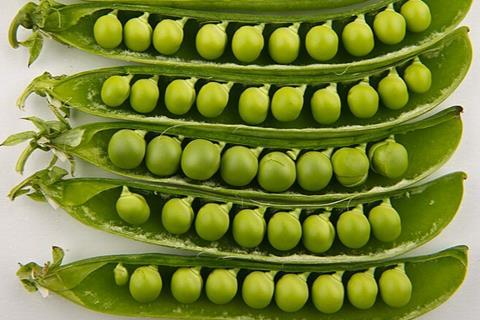Sour beers have become a fixture on microbrewery menus and store shelves. They’re enjoyed for their tart, complex flavors, but some can require long and complicated brewing processes.

Researchers reporting in ACS’ Journal of Agricultural and Food Chemistry brewed new sours in less time using a seemingly strange ingredient: field peas. The experimental beers had fruity — not “beany” — flavors and other attributes comparable to a commercial Belgian-style sour, but with shorter, simpler brewing steps.
“Sour beer is the beer enthusiast’s alternative to Champagne. By using sugars derived from peas that yeast cannot metabolize, we promote the growth of bacteria essential for producing sour beer,” says Bjørge Westereng, one of the study’s authors.
Lactic acid-producing bacteria
The characteristic mouth-puckering taste of a sour beer comes from acids made by lactic acid-producing bacteria (LAB) or Brettanomyces yeast, which are added by brewers or introduced naturally from the environment. However, these microbes often require months or even years to ferment the original sugary, steeped-grain liquid (wort) into a desirable drink. So Westereng, Philipp Garbers, Catrin Tyl and colleagues at Norwegian University of Life Science have been searching for sugars beyond those found in traditional grain for the LAB to feed on that might speed up the fermentation process.
READ MORE: Killer yeasts may help remedy a craft beer brewing bother
READ MORE: Wild yeasts from Patagonia could yield new flavors of lagers
Previously, they tried molecules derived from wood. But this time, they turned to a group of plants called pulses, which includes beans, lentils and peas. Pulses have historically been underutilized largely because of their tendency to impart beany flavors to foods. But they’re considered sustainable and easy to grow, and contain sugars called raffinose-family oligosaccharides (RFOs), which LAB can easily use as a food source. In the new research, the team brewed sour beers with RFOs extracted from field peas and compared the final product to a commercially available Belgian sour.
Experimental sour beers
Using three different LAB, the researchers brewed four experimental sour beers: two with the field pea RFOs and two without. All four were fermented for 19 days with Brettanomyces clausennii yeast together with combinations of LAB. After chemical analysis and evaluation by a trained sensory panel, the team discovered that the beers brewed using the RFO extract had:
- More lactic acid, ethanol and fruity flavor-imparting compounds than the beers brewed without RFOs.
- Fruitier flavors, more acidic tastes and higher total taste intensity than the beers made without RFOs, but total taste intensity comparable to the commercial beer.
- No trace of unwanted beany flavors.
Despite the short fermentation time, the LAB devoured all the RFOs, leaving no detectable traces in any of the experimental beers. This is important because RFOs can cause gastrointestinal problems for some people. The researchers hope that this work shows how pulses and RFOs could be incorporated into beer brewing and that pea-based ingredients can be associated with products that taste good.
The authors acknowledge funding from the Research Council of Norway, the infrastructure grants “Norwegian Biorefinery Laboratory” and “Food Pilot Plant Norway,” the Green Technology for Plant-Based Food project, and the Norwegian Fund for Research Fees for Agricultural Products.







No comments yet